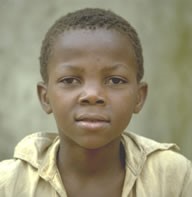Nyankore, Hororo in Uganda

Photo Source:
Masters View / Howard Erickson
|
Send Joshua Project a map of this people group.
|
| People Name: | Nyankore, Hororo |
| Country: | Uganda |
| 10/40 Window: | No |
| Population: | 156,000 |
| World Population: | 180,000 |
| Primary Language: | Nyankore |
| Primary Religion: | Christianity |
| Christian Adherents: | 97.00 % |
| Evangelicals: | 23.00 % |
| Scripture: | Complete Bible |
| Ministry Resources: | Yes |
| Jesus Film: | Yes |
| Audio Recordings: | Yes |
| People Cluster: | Bantu, Central-Lakes |
| Affinity Bloc: | Sub-Saharan Peoples |
| Progress Level: |
|
Introduction / History
The Nyankore people, also known as Banyankore, are a Bantu-speaking ethnic group native to southwestern Uganda. They speak Runyankore, a language closely related to Rukiga, and part of the larger Runyakitara standardized language group. Historically, the Nyankore were part of the Kingdom of Ankole, which was ruled by a monarch known as the Omugabe. The society was traditionally divided into two main social groups: the pastoralist Hima and the agriculturalist Iru. This division shaped social and economic relations, with cattle ownership and military service reserved for the Hima elite. The kingdom became a British protectorate in 1896 and was later integrated into Uganda in 1901.
What Are Their Lives Like?
The Nyankore live primarily in rural areas where agriculture and cattle rearing are central to their livelihoods. Families cultivate crops such as bananas, millet, beans, and groundnuts, while also raising Ankole cattle, known for their distinctive long horns. Social life is organized around clans, and traditional values such as respect for elders and communal cooperation remain strong. Education and healthcare services are available in many areas, though access can vary depending on location. Urban migration has increased in recent decades, with many Nyankore seeking employment and educational opportunities in cities such as Mbarara and Kampala.
What Are Their Beliefs?
The Nyankore traditionally practiced ethnoreligion, which included ancestral worship, nature-based rituals, and spiritual ceremonies tied to agricultural cycles. With the arrival of Christian missionaries during the colonial period, many Nyankore converted to Christianity, and today both Catholic and Protestant churches are active in their communities. Despite widespread Christian influence, traditional beliefs and practices continue to shape cultural identity, especially in rural areas where ancestral customs are still observed.
What Are Their Needs?
Access to culturally relevant education that incorporates Runyankore language and heritage would strengthen identity and improve literacy. Economic development initiatives focused on sustainable agriculture and cattle farming could enhance livelihoods and reduce poverty. Preservation of cultural traditions and oral history is important, especially as younger generations become more urbanized and disconnected from ancestral practices.
Prayer Points
Pray that the Nyankore people would experience spiritual renewal and a deepening of faith rooted in both Scripture and their cultural context.
Ask God to raise up local leaders who can disciple others and build strong, Christ-centered communities.
Pray for healing and reconciliation in areas where historical divisions between social groups have caused tension.
Lift up efforts to translate and distribute Christian resources in Runyankore, and for churches to be places of unity, hope, and transformation.